
Seth Swirsky: “I see melodies as butterflies that I am trying to catch”
A hit songwriter, solo artist, band member, successful author, documentary maker, Beatles fanatic, master of melody and so much more
Such is his vast array of accomplishments, it’s impossible to take a quick glance at the CV of Seth Swirsky. As a songwriter for others, he has penned songs for Taylor Dayne, Al Green, Rufus Wainwright, Olivia Newton-John and many others. Dayne’s 1987 classic, Tell It To My Heart, is just one example of Swirsky’s seemingly innate ability to conjure up melodies that are impossible to shake off. That knack is immediately apparent in his own output, whether with retro-pop band The Red Button or from a solo career that is four albums in.
Other notable career highlights from the native New Yorker who now lives in Los Angeles include his five best-selling books, covering everything from baseball to self-help, and his award-winning documentary Beatles Stories. A lifelong Fab Four fanatic, Swirsky pieced together different interviews of people sharing their firsthand experiences of the group that, when taken together, form a complete picture of The Beatles and the tidal waves of influence that spread from them. Still shown on Sky Arts in the UK, it’s well worth a watch.
Today though we’re focussing on his own music and songwriting, in particular his latest solo album, Songs From The Green Couch. Help came from Brian Jonestown Massacre’s Rob Campanella, engineer of the record, and Triptides’ Glenn Brigman (bass) and Brendan Peleo-Lazar (drums) who formed something of a power-pop trio with Swirsky. Combining sun-drenched West Coast vibes with the classic songwriting of Sir Paul himself, it’s a thoroughly enjoyable listen packed with memorable hooks. Enticed, we were keen to find out more about its creation…
Click here for more interviews
Is the green couch a specific place you go to do your songwriting?
“It really is. It’s the safe space in my life where, if I’m out in the world, I feel myself being pulled back to. I’m a mixture between extrovert and introvert. It’s in that song on my album called Every Time; I tried to explain it in that song. For some reason, sitting on that green couch, nothing is wrong with the world. Even the most minor things that bother you during the day. For some reason, that is a very safe space for me, almost like when Brian Wilson wrote In My Room, or Lennon wrote, There’s A Place… that’s my place.”
Has it always been the case that you have to be in a specific place to do songwriting, either physical or metaphorical?
“I’ve written under all kinds of conditions, but there’s a comfort to this particular zone of life I’m in right now, in terms of this place, this couch. If you ask, ‘Well, how did you get a piano on that couch?’ Of course, I didn’t. My piano is downstairs. But I would write the melody upstairs on my acoustic guitar. I’m an old-school songwriter, I don’t have any equipment at home, just an acoustic piano and one guitar.
“I like to go into the studio and let the engineers do what they do. Because inspiration-wise, I don’t put down a recording at home, I think that’s very important. You’ll start and then, all of a sudden, there’s a buzz in your left ear and that’s a half hour of trying to say, ‘That red wire goes there and that blue wire goes there,’ and that ruins the inspiration. I really like to write almost about 70 percent of the song before I get into the studio and leave about 30 percent where I don’t know what it’s going to be. I like to bark out orders to the engineer. We’re very, very close, so our understanding of our roles is very clear. But I like to say. ‘I need a guitar right now,’ or, ‘I’ve gotta get a Mellotron right now,’ and he’ll just whip it up, because I really just want to paint musically.”

Seth Swirsky: “I see melody as the furniture in a room, and I see the lyrics as the drapes”
So you don’t record any demos?
“No, I have an old-fashioned tape recorder from the 80s and it just makes me feel like I did when I was 16, writing songs. You hit play and record and it’s so simple. I don’t have to think about, ‘What’s that button?’ I already know how I like to write, I know the things I know, all I got to do is press a button. The important thing to me is to get that melody down. You hear that in your head and you’ve got to get that down.”
Where does the knack for writing great melodies come from? Is it something that you can train yourself to do?
“You never know what you are until you are it. I never knew what kind of songs I wrote and what they evoked until I was a songwriter with EMI, Chapel and different companies for years, writing for other artists. I didn’t know until people started to take my songs, saying ‘Oh, we want one of his songs. They’re happy songs’. I didn’t know I wrote happy songs. I’ve been depressed just as much as everybody else, I feel the whole spectrum of emotions, but for some reason, it kind of comes out that way.
“I would never compare myself in the real world to Paul McCartney, he’s my idol, but people say the same thing about him. ‘Oh, Paul’s the happy one.’ But Paul wrote a lot of very dark things too, like Eleanor Rigby. You don’t know what you are until you are it, and I just wrote a whole lot of things and then I realised that I’ve got this kind of a knack for melody. The problem with me is that I write so many melodies at once that it’s hard to know which one to use.
“I see melodies as butterflies that I am trying to catch. Then it becomes me humming it to myself later. They’ll come back to me, because some of these melodies that are on Songs From The Green Couch, I’ve had for two years or ten years or whatever. I couldn’t crack the code back then. So it’s, ‘Let’s see if I can crack it right now.’”
How do you see the relationship between melody and lyrics?
“I see melody as the furniture in a room, and I see the lyrics as the drapes. In other words, the most important thing in any song to me is not the vibe, or the look of the singer, or the instruments being played. Don’t get me wrong, those are all massively important, and words are very important too. But it’s all about the melody. It’s the melody that grabs you when you’re doing your everyday chores, or when you’re out at the supermarket. That melody is the thing that’s very hard to get space in your head, you’ve got a lot of things to think about every day. Most people though will tell you, ‘Oh, I listened to the lyrics first’. You know, that’s a lie. That’s them trying to sound more intellectual.”

Seth Swirsky: “If you’ve got to do something you find a way”
Have you ever considered teaming up with different writers and just being the person who comes up with the topline?
“No, and as a matter of fact, I didn’t know what the word “topline” meant until about a year ago. To me, it’s music and lyrics. I grew up with The Beatles, Billy Joel and Paul Simon, and really great songwriters of the three-minute pop song. That’s what I want to do and I like writing full songs on my own. Some days, people say to me, ‘You write music and lyrics?’ And to me, that’s like, ‘Yeah, of course!’ It’s like saying to a soccer player, ‘You mean you can kick the ball with your feet but you can also bounce it off your head?’ To me, that’s what’s natural. I’ve co-written many songs over the years, but I never preferred it. I like coming up with a melody and then putting the drapes on.”
Yet on this album, the lyrics depict the highs and the lows of the relationship, there’s a clear theme and meaning to them. It’s not as if they’re throwaway…
“Very true. To double back, as I said, I write about 70% of the song when I’m in my house, but I leave a little bit open because I like spontaneity as it happens. So there’ll be times where I’d be in the middle of this relationship, and they’d be good times and it’d be kind of a good melody and happy. Then when we broke up, I was so devastated by it, that 30% went in. If I needed a bridge, I would write things like, ‘I’m sitting on my suitcase, waiting for the time to pass,’ meaning I know it is going to take time before I get over this. So on a song like that, Rose Avenue, there’s that juxtaposition between the bright and the dark, which I like when that occurs. That’s why I like to go into the studio when it’s not fully done, because I like the mood at the moment.”
Are you one of those people who is always in songwriter mode? Even when you’re going through difficult times in your life, are you thinking, ‘This is gonna make a nice lyric down the line?’
“I don’t say that. But I will say that, when you’re in your 20s, and you’re writing songs, and then you’re not writing for a little bit… let’s say a month goes by, then two, and that then turns into a few months and you don’t have a song, you think to yourself, ‘I’ll never do this again, I’ve lost all inspiration, it’s over.’ That’s how you feel in your 20s, but now I’m sitting on a different part of the mountain and I can look down and tell other songwriters. ‘Now that’s not true.’
“So, to answer your question, if you’re a real songwriter and you’re committed to it, you’re always writing. You don’t have to be saying, ‘I feel this emotion, I better write it down.’ But you’re working it out, you’re a walking, breathing songwriter. You don’t have to be writing to be working out a lyric or an idea.
“I started painting about 20 years ago and I just noticed that the act of painting kept me creative. The lyric that wouldn’t come, it wasn’t in my front brain where I was trying to bang out that thing and trying to come up with something, I was trying to force a round peg into a square hole. What happens if you’re creative in another realm, like painting, is that it works itself out subconsciously, while you’re doing that other thing. So sometimes I’d be painting and then at the end of the painting, I would say, ‘Ah, there’s that lyric.’”
Similarly, is it also the case that the true meaning of a song reveals itself to you further down the line?
“Yes, and I’m telling you, it’s often years later. There are so many examples of that. When I was doing my second solo record Watercolor Day, there was a lot of imagery. There were songs like Song For Heather and Summer In Her Hair and even the song Watercolor Day, and I only realised years later that I was dreaming of that girl and as a songwriter, you’re kind of allowed to do that. I was married at the time; I’m not married to the same person now. I think that’s the way songwriters, without even knowing it, can dream of that girl on the beach, or whatever. So when I look back on Watercolour Day, I think I was in that phase, not knowing that I was searching for something that I wasn’t getting in a marriage of two people that really did like each other very much.”

Seth Swirsky: “As a maker of things, you have to have a burning passion for what you’re doing”
Getting back to the new album, what can you tell us about the studio process and working with Rob and Triptides?
“Each album I do, whether it’s with The Red Button or solo, I try and challenge myself to something that I haven’t done before. My solo record before this one was Circles And Squares. For that, I was determined to play every instrument. I brought in a guy to play horn, so I can’t officially say I played every little thing, but I played all the drums, all the bass… every instrument on the record, you know. That was my goal for that record. I grew up with McCartney, Paul’s first record. He’s my main inspiration so I wanted to get that done.
“I didn’t have that goal for this record. I didn’t need to do that here. So when I started recording the songs, Rob, the guy in the studio said, ‘You know, I know a great drummer, Brendan from Triptides,’ and he introduced me to his bass player. I could have played those things as well, but my ego was not in the same place it was in 2016. I don’t mean out-of-control ego I mean, more like, an accomplishment.”
What was the result of that decision?
“I thought to myself, ‘I can go for a little bit of a different sound. I can get a little tougher.’ I like my drumming, I like my bass playing, but I don’t have to do it. I wanted to hear what other people would bring to the table. Before you know it, it was one song that we did and then I said, ‘Let’s go for the whole thing. Every song from now on. If you guys want to do it, I’d love to have you,’ and then it became this little three-piece band.”
Do you think having other people around brings something different to your music, even if you’re the person directing them?
“It does. But it also brings a sense of anxiety too. When I was playing the original tracks, I started with guitar and then I’d double the guitar and put a fake vocal on it. I’ll do the vocal later. But at least there’s a guide. Then the drummer and the bass player will come in, and I want them to play together, and then I’ll hear it back. I have them do a number of takes, and then I’ll think, ‘Oh my god, that baseline was so fantastic but that drum part over there was amazing,’ so there’s a lot of notes you’ve got to take because I want every passage to be special.
“Whenever I’m making a song, album, painting, book or whatever I do not do the thing I used to in my 20s. ‘Is the manager gonna like it, are the artists gonna like it, is my mother gonna like it, or my friends?’ In my head, I was trying to please 30 people. And now I have the saying, and it’s up on my wall, ‘Audience of one.’ So when I make my songs, and I listened to the Triptides bass player, I’m thinking, ‘I love that line. I want to hear that line in my headphones, night after night.’ I really do make my albums for me. I don’t want to say, ‘Oh, I can let that go. It’s a throwaway’. There are no throwaways from me. People out there may not like something, and that’s totally fine with me, but I want to love it the same way I love a record I grew up with.”
Are you also thinking about an album as one body of work that flows from song 1 through to song 15?
“Absolutely. It’s so deeply important to me, because I remember very well growing up and putting the needle on a record in my music room. It was important and I was angry if I had to lift up the needle thinking, ‘How could they put that song in there?’ I expected good songs, and the Beatles gave it to you, where I never picked up the needle. That’s the template that I come to making records with.
“I know that nobody’s looking on a CD right now and I know that most people don’t even know the titles, they’re saying, ‘I love track seven on your record.’ I know the real world and the way it is right now, but again, ‘Audience of one.’ I want to make an album that flows through and by the end of it you’re saying, ‘I could take a little more of that.’”

Seth Swirsky: “It’s the melody that grabs you when you’re doing your everyday chores, or when you’re out of supermarket”
Would you encourage up-and-coming songwriters to use that approach?
“Don’t forget a lot of up-and-coming artists are also thinking of, ‘I want to make money at this, now.’ In your twenties you’re not thinking so much, you have a dream and you want to hammer it. You want to really go for that and that’s fantastic. So I just encourage people to just keep making music. I don’t care if you go to dental school too, you know, I mean, you got to express that, you can’t say “no” to that.
“When people say, ‘I’ve got a book in me but I don’t have the time to do it.’ I always say, ‘Ask the busy man.’ I know people that have got a full-time job, but they’re making books and they’re making albums. They don’t let that time thing get in the way; if you’ve got to do something you find a way. I absolutely believe in encouraging all art to be made. I think it’s very important, personally, and for people around you – your kids, who you’re with – to hear music and be around it.
“I talked about people trying to make money, I think music is at an interesting point in terms of who can and who can’t make money from it. A lot of people have to have one or two jobs as well as being a musician, and maybe their only income comes from being a touring musician, rather than a recording artist or a songwriter. I’m not sure how many people can get into writing-for-hire these days, I don’t know how much of a closed shop it is. But it feels quite tricky for people.”
As someone who has a diverse portfolio including books, documentaries and songwriting, what is the secret to getting stuff done?
“Passion. You really have to want to do it. Let me put it this way. If you’re driving from Los Angeles to Las Vegas, and I’m using Las Vegas as a good thing, you leave the city and then there’s a long, long road and it’s boring… That’s like a project that you do, whether it’s making an album, a piece of art, or a movie. It’s exciting when you leave. You throw your bag into the car and you’re totally out on the road off to Las Vegas. You’re on that road for a long time before you get to the town with all the lights where you’ll have a great time.
“The beginning of a project is like leaving Los Angeles. You’re excited about the possibilities of Las Vegas/the possibilities of your project. After that beginning stage is when most people trip up, because it’s a long and boring road. So, as a maker of things, you have to have a burning passion for what you’re doing.”
With Songs From The Green Couch written, recorded and released, has it now reached Las Vegas – is that its final destination?
“You know, I really want people to hear it. I don’t need it to be No 1 on the charts. I’m realistic. When I wrote songs for other recording artists over the years, I would hear back from a guy at Arista Records to say it was just added at this radio station or it was going to hit the charts next week, that was a fabulous time. But that’s not my reality today and that’s fine with me. I want to put out a record and I want the people that have heard it to like it, obviously. But I’m not terribly thrown by people that don’t like it.
“When you put out any art, you’re letting go and you’re not part of it anymore. I’ve seen reviews of my songs where they’re saying, ‘He was very influenced by Tom Petty on this song,’ and I’m thinking, ‘I wasn’t influenced by Tom Petty on that song at all.’ I mean, it’s so funny. So everybody brings their own lens to it. But to answer your question in a more focused way, I do want people to hear it. I am especially proud of this record. It wasn’t a throwaway for me, it was a two-year process and lots of writing.”


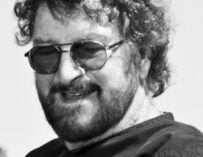

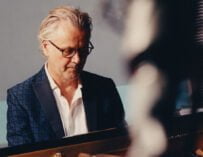



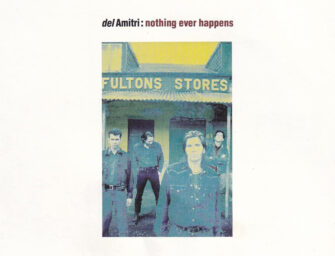

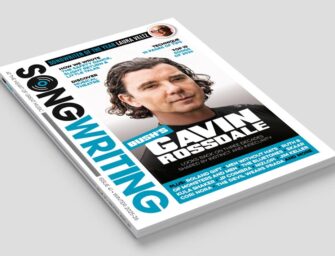
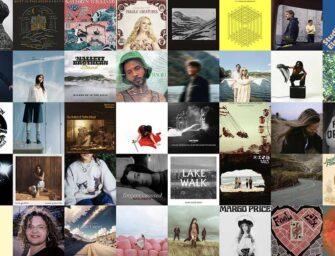




















Related Articles